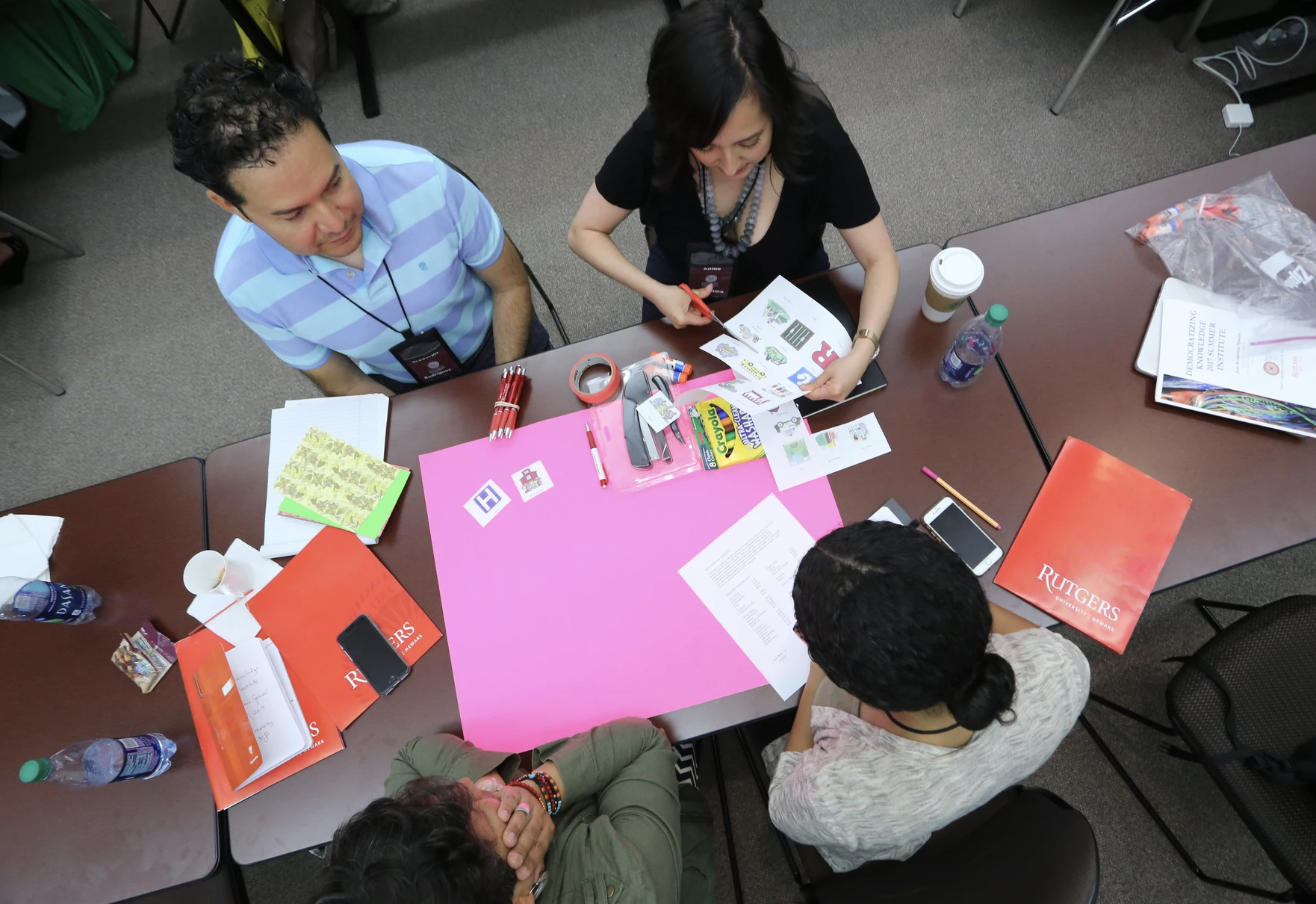
Last week, our friends at AASCU convened 22 provosts for its prestigious Student Success Institute (SSI), a year-long leadership program led by Sova with support from Ascendium. ACUE was delighted to spend time with these leaders, share insights from years of partnership with AASCU-member Rutgers University-Newark (RU-N), and take provosts through a holistic approach to faculty engagement and evidence-based teaching, leading to student success and equity.
Dr. Sherri-Ann Butterfield, Executive Vice Chancellor, showcased the teaching and learning transformation well underway at RU-N. In 2014, with new leadership from nationally-recognized President Nancy Cantor, RU-N updated its strategic plan and put effective teaching at its core.
Butterfield emphasized that students were instrumental to the process. “They helped us recognize that we weren’t just the most culturally diverse campus in the country, but that they have diverse learning styles, too.” Through conversations with colleagues, full- and part-time faculty, and students, the new plan was “organic and built from the ground up.” Butterfield added, “One of the clearest priorities was investing in our faculty to help strengthen their teaching.”
The convened provosts were particularly interested in RU-N’s P3 Collaboratory, a result of the new strategic plan developed in partnership with ACUE. It brings together pedagogical development, professional and career development, and public-interest research (the “three p’s”) under one roof and, as Butterfield pointed out, shows that “research and teaching are not mutually exclusive.” It’s a timely reminder, given recently announced efforts to overhaul higher education’s hallowed R1 and R2 classifications.
Some RU-N faculty were concerned if they’d truly be rewarded for investing in their instruction, given how little attention has been paid to teaching historically. So, RU-N built teaching into its reward structures. The result: a change of culture around tenure and promotion, with teaching portfolios getting greater consideration. Peer-recognition awards continue to matter, as does an annual ACUE pinning ceremony and reception for newly certified RU-N professors. “It matters to people,” Butterfield underscored.
Evidence of change has also been key to sustaining momentum. In 2019, the Center for Advanced Study of Education at the CUNY Graduate Center examined the effects of evidence-based teaching at RU-N. Principal Investigator Dr. Deborah Hecht found that success and learning were stronger: among students taught by ACUE-certified faculty, 93% percent passed their courses, compared with 85% of students among comparison faculty; average grades also improved from 3.27 before instructors enrolled in ACUE coursework to 3.41 after instructors earned their certificate.
Inspired by RU-N’s progress and Butterfield’s passion, AASCU’s provosts then rated their own institutional efforts. The exercise used a new toolkit, “Success & Equity through Quality Instruction: Bringing Faculty into the Student Success Movement,” developed by ACUE and Sova and published by the Education Commission of the States through Strong Start to Finish.
With facilitation by ACUE’s Aaron Bolton, Petra Kohlmann, Penny MacCormack, Laurie Pendleton, and Jodi Robson, the provosts looked holistically across five key domains: their strategy, their focus on equity, the comprehensiveness of their approach, the extent to which the work is evaluated, and the intentionality of impact to campus culture—all through the lens of faculty, teaching, and learning. The toolkit’s practical suggestions left the provosts with ways to make progress at their institutions.
“Faculty are key to student success,” said Dr. Jonathan Gyurko, ACUE’s President and Co-founder, who led the session. Gyurko added, “We’ve seen that simply offering more professional development isn’t enough to transform a campus to see evidence-based instruction in every class as a key lever of stronger student achievement and equity.” Rather, “it takes the holistic approach that RU-N exemplifies, that the toolkit recommends, and that ACUE’s partnership, academic, research, and communications teams deliver.”
Nor does the work end. “It’s a constant iterative process,” added Dr. Butterfield, who also thanked ACUE for its ongoing collaboration that continues to make an impact on student success and equity.
